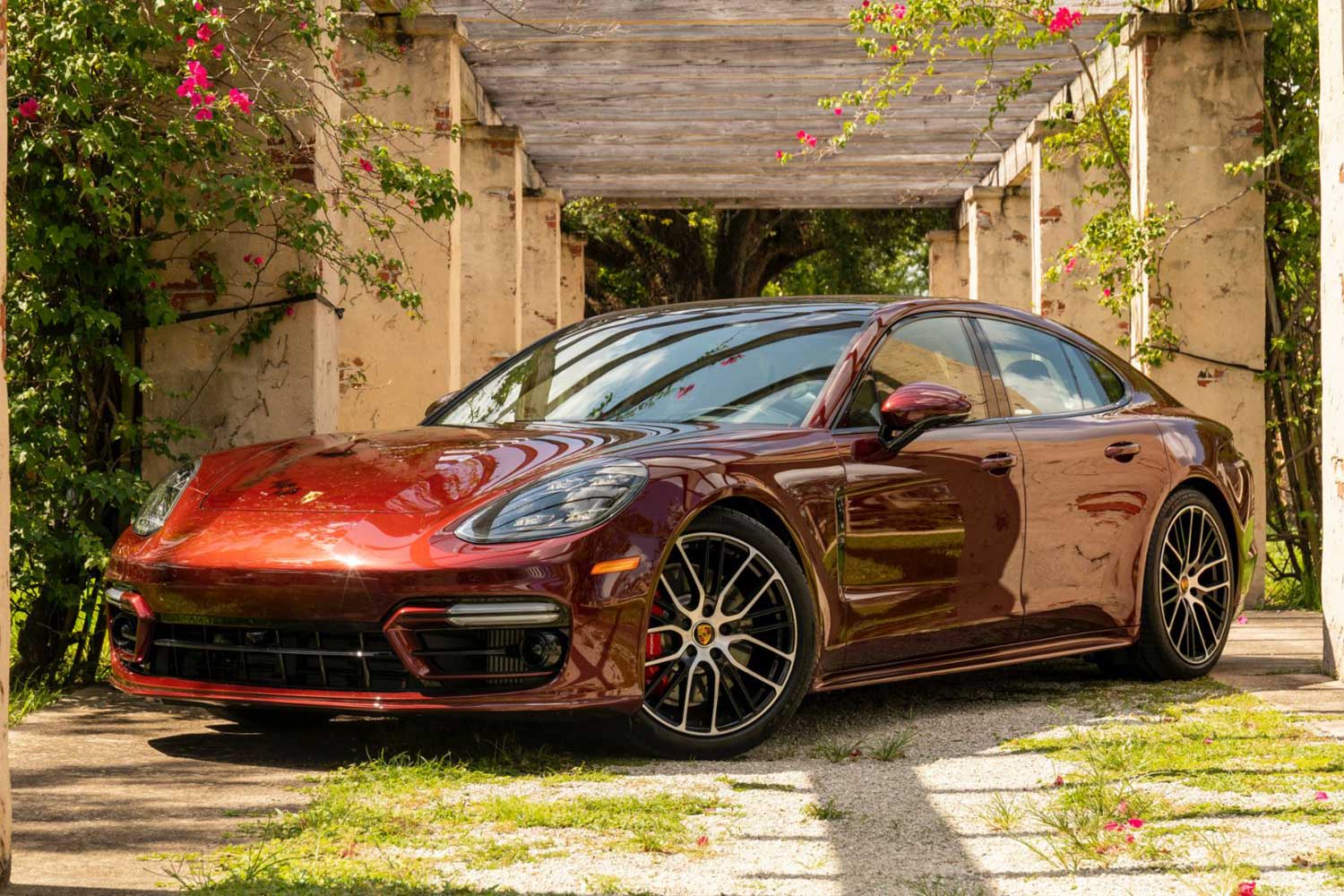The Hidden Costs of Driving a Used Luxury Car, and How to Beat Them
Previously owned luxury cars can be cheap to buy if you pick proven models with long-term reliability and low maintenance costs.
 Porsche
Porsche
Few things in life can depreciate as quickly or brutally as a new, full-size luxury vehicle.
Capital One recently calculated the long-term depreciation of a half-dozen 2012 model-year luxury cars. In the findings, only two vehicles — the Tesla Model S and the Lexus LS 460 — could maintain more than 20% of their original value after a decade. The others, including the Audi A8, BMW 7 Series, Mercedes-Benz S-Class, and Porsche Panamera, lost over $60,000 in value.
Instead of buying a new luxury car, think about purchasing an older, well-kept version of what interests you. It will usually cost a lot less in the long term.
Here are a few tips to help you score a used luxury ride for the costs of a new compact.
Keep the Powertrain of Your Used Luxury Car Simple
Luxury cars with direct injection engines, turbochargers, and continuously variable transmissions (CVTs) all have lower levels of reliability according to the Long-Term Quality Index, a reliability study covering more than 3 million vehicles inspected and appraised by professional mechanics.
It’s no accident that the top three rated luxury cars — the 1995 to 2015 Lexus LS, 2013 to 2019 Cadillac XTS, and 1990 to 2011 Lincoln Town Car — all feature normally-aspirated engines and conventional torque-converter automatic transmissions. These simple powertrains yield lower repair costs, whereas a failed CVT or blown turbo can command thousands of dollars to repair.
Find a Used Luxury Car That Runs on Regular Gas
Right now, $5 per gallon is the norm in several cities. But even when gas was $4, the average car owner who drove an 18-mpg luxury car just over 14,000 miles a year paid nearly $6,000 extra for 91-octane premium fuel, assuming an extra 60 cents per gallon over regular 87-octane gas at the pump.
If the spread between regular versus premium adds up to a dollar a gallon where you live, that cost increases to nearly $10,000 over 10 years.
Used Luxury Cars Cost More to Insure
Higher parts and labor costs for a luxury vehicle factor heavily into that cost difference, as does replacing that luxury car entirely after a major crash. A recent study showed that there is an approximate $1,800 annual spread between insuring a 2017 Mercedes-Benz S550 and BMW 740i versus a 2017 Toyota Camry LE and Honda Civic EX.
One hack: older cars — even luxury models — tend to be cheaper to insure than newer versions.
Finding Luxury in a Non-luxury Brand
All the above savings only get amplified if you don’t mind looking for even older used luxury vehicles and non-luxury brands.
For example, let’s consider the long-forgotten Hyundai XG350L that I recently picked up. It sips regular gas, shares a basic powertrain that ended up in over a million Hyundai and Kia cars, and insuring it was a breeze. However, I found a low-mile version and made extra effort to invest in preventative maintenance so that little problems never became big.
If you can find a similar example, you, too, can own a used luxury ride for the costs of a new compact — or sometimes even less!
Written by humans.
Edited by humans.
 Steven Lang
Steven LangSteven Lang is a special contributor to Capital One with nearly two decades of experience as an auto auctioneer, car dealer, and part owner of an auto auction. Some of the best-known auto publications turn to him for his expert insight. He is also the co-developer of the Long-Term Quality Index, a survey of vehicle reliability featuring over two million vehicles that have been inspected by professional mechanics.
Related articles
View more related articles